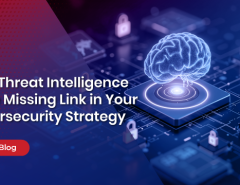Effective cybersecurity for Small and Medium Businesses (SMEs) is a major necessity today, thanks to the large number of such businesses that are flourishing. With easy Internet access, high-end business productivity tools and cloud-based service platforms, SMEs have it better than ever when it comes to regulating their day-to-day operations. However, such services come with their associated risks, and unfortunately, cybersecurity is one domain that SMEs fail to acknowledge as a channel to divert resources towards. Here are some simple Do’s and Don’ts for SMEs that can be implemented in order to maintain the integrity of their machines and networks.
What SMEs Should Do for Enterprise Security

Train Employees
Since most cybersecurity risks primarily originate due to user negligence, it is important to train and educate employees about cybersecurity. Employees should know what to do in case of security alerts and they should also know to be cautious about what they click on, what information they share and what USB devices they plug in their machines.

Regulate Mobile Devices
With almost all employees owning a plethora of gadgets and smartphones, it is crucial for SMEs to regulate the usage of these devices. A lot of sensitive information and emails can be accessed on these devices and they also contain access to the company’s wireless networks. So monitoring and regulating such mobile devices is essential.

Backup Data
When it comes to data backup, we recommend following the 3-2-1 rule. As per this, SMEs should maintain 3 different copies of all their sensitive data, over 2 different formats and locations and at least 1 of these locations should be offline. Following this rule will ensure that all confidential company information remains in the hands of the organization itself.

Encrypt Data
Simply saving and storing data is not enough anymore as it can be breached and accessed at any time. It is always advisable to encrypt data when it is saved and backed up. Access to this data should only be granted to specific people and such security measures help enterprises maintain the integrity of their critical data in the long term.

Use Security Solutions
When it comes to effective enterprise security solutions, there is no dearth of options available in the market. It is important to choose a solution that meets the exact requirements of the organization, and does exactly what it promises to do. Extra features and customizations can always be added later so the SME should know its precise needs before choosing a solution. You can also carry out this assessment to see how vulnerable your small business is.
What SMEs Should NOT Do for Enterprise Security

Don’t Click on Unknown Links
Phishing emails with malicious attachments and social engineering techniques are common methodologies to trick users into clicking on links within emails and on pages. Employees should be aware that every external link should be carefully studied before being clicked on. This includes checking the authenticity of the link, checking for HTTPS verification and many more hacks to spot fake phishing links.

Don’t Install Untrusted Apps
The web is full of interesting applications and programs that seemingly make life easier. However, it is crucial to only install applications from trusted sources and software developers. To ensure that this is the case, employees should do a little research about an unknown developer before installing an app, and should also stay away from dangerous stores and sources for installing applications.

Don’t Connect to Free Public Wi-Fi
It is highly advisable to stay away from free Wi-Fi networks in public places. If they must be used at all, employees should remember to not access any personal accounts or share important documents over these networks, as that data can very easily be intercepted by anyone with even basic computer knowledge. With many people using their personal devices for official work, this is a problem that needs serious policing for better security for SMEs.

Don’t Create Simple Passwords
The rules for password creation are simple – use different characters, use numbers and special symbols, use uppercase and lowercase letters and don’t use simple dictionary words. Ignoring these rules can lead to successful brute-force password hacks which can lead to security breaches and data leakages within organizations.

Don’t Think You Are Hack Proof
Many SMEs live under the misconception that they are too small to be hacked and that the data they possess cannot be of much importance to hackers. This leads to negligence and carelessness with regards to network and data security. This idea should be removed from the minds of SMEs since any piece of data can ultimately be used in a grander scheme of things. Underestimating the importance of your personal data is probably the first step towards losing that data and having it leveraged against you.
With these security precautions in mind, enterprises can choose to enhance their enterprise security and stay protected against the various online and offline threats to their organization. Stay tuned to the Seqrite blog for more highlights and insights. You can also refer to these five essential security tips for startups.




